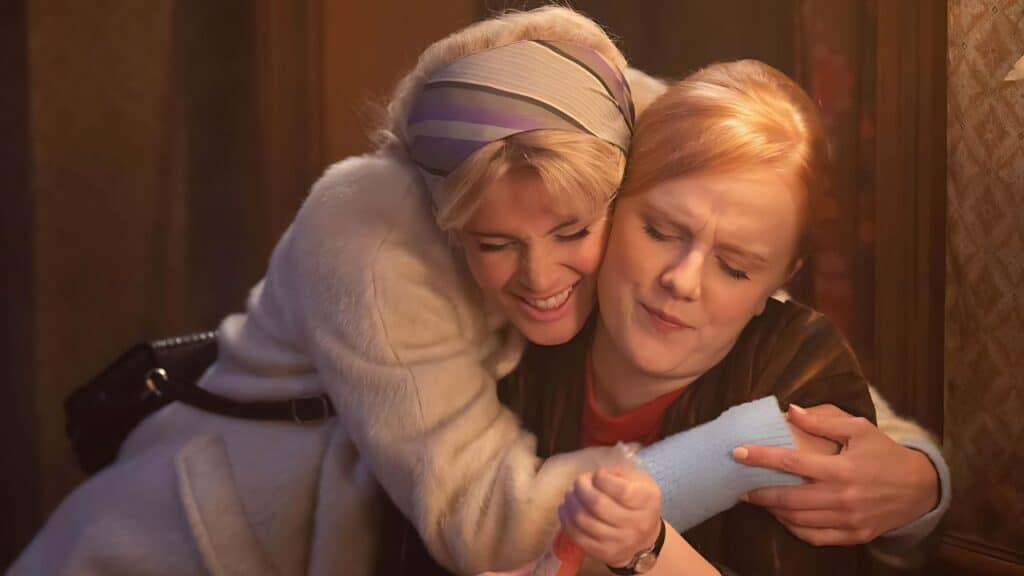In the second season of Funny Woman on Sky Max, Gemma Arterton’s captivating performance as the protagonist, Barbara Parker, is a standout. The show depicts Barbara’s journey from a Blackpool beauty queen to a popular sitcom icon in 1960s London. Despite Arterton’s undeniable charisma, the series struggles to maintain a consistent tone and often veers between broad comedy and poignant drama.
Based on Nick Hornby’s novel Funny Girl, the Sky drama effectively captures the essence of Swinging London through its meticulous attention to period-specific details. The nostalgic portrayal of the era, complete with regular scotch-drinking and bedtime cigarettes, evokes a sense of familiarity reminiscent of Mad Men. However, the show’s struggle to establish a cohesive tone persists despite the authentic retro aesthetic.
Arterton’s portrayal of Barbara as a resilient and talented individual who captures the hearts of Londoners with her wit and singing prowess is a highlight. However, the overall execution of the series falls short of its potential. The narrative oscillates between humorous encounters, such as Barbara’s clashes with comedy writers aiming to mold her next sitcom character, and emotionally charged moments when Barbara grapples with the complexities of her strained relationship with her mother, played by Olivia Williams. This inconsistency in tone results in a meandering storyline that fails to fully capitalize on Arterton’s luminous performance.

“Arterton’s performance possesses an undeniable magnetism that helps mitigate the inconsistencies present in the show. However, the struggle seems apparent when she is off-screen. For instance, her love interest, Dennis (Arsher Ali), a comedy producer trapped in a troubled marriage, fails to bring depth to the storyline. His attempts to extricate himself from the relationship spiral into unsatisfying farce, especially when he encounters a lawyer, portrayed by comedian Tim Key, whose character feels out of place, as if lifted from a Fast Show sketch.
The central narrative of Barbara’s pursuit to become a pioneering voice in comedy, inspired by her idol Lucille Ball, is somewhat sidelined. Only later does it gain some urgency as she harnesses her influence to headline a new sitcom centered around two female friends navigating the urban landscape (Róisín Conaty plays her counterpart).
The script appears somewhat incomplete, featuring lines of dialogue that land as mere placeholders for better jokes (“Want some fish to go with that chip on your shoulder?”). The show’s struggle lies in its failure to strike an adequate balance between comedy and drama. While Arterton effectively embodies the spirit of an underdog, the show’s inability to establish a coherent tone should not be overlooked. It seems that the series struggles to be sufficiently funny to qualify as a comedy and yet lacks the weight to succeed as a drama.
The second season of Funny Woman premieres on Sky Max tonight at 9 pm, with the full series already available on NOW.”
